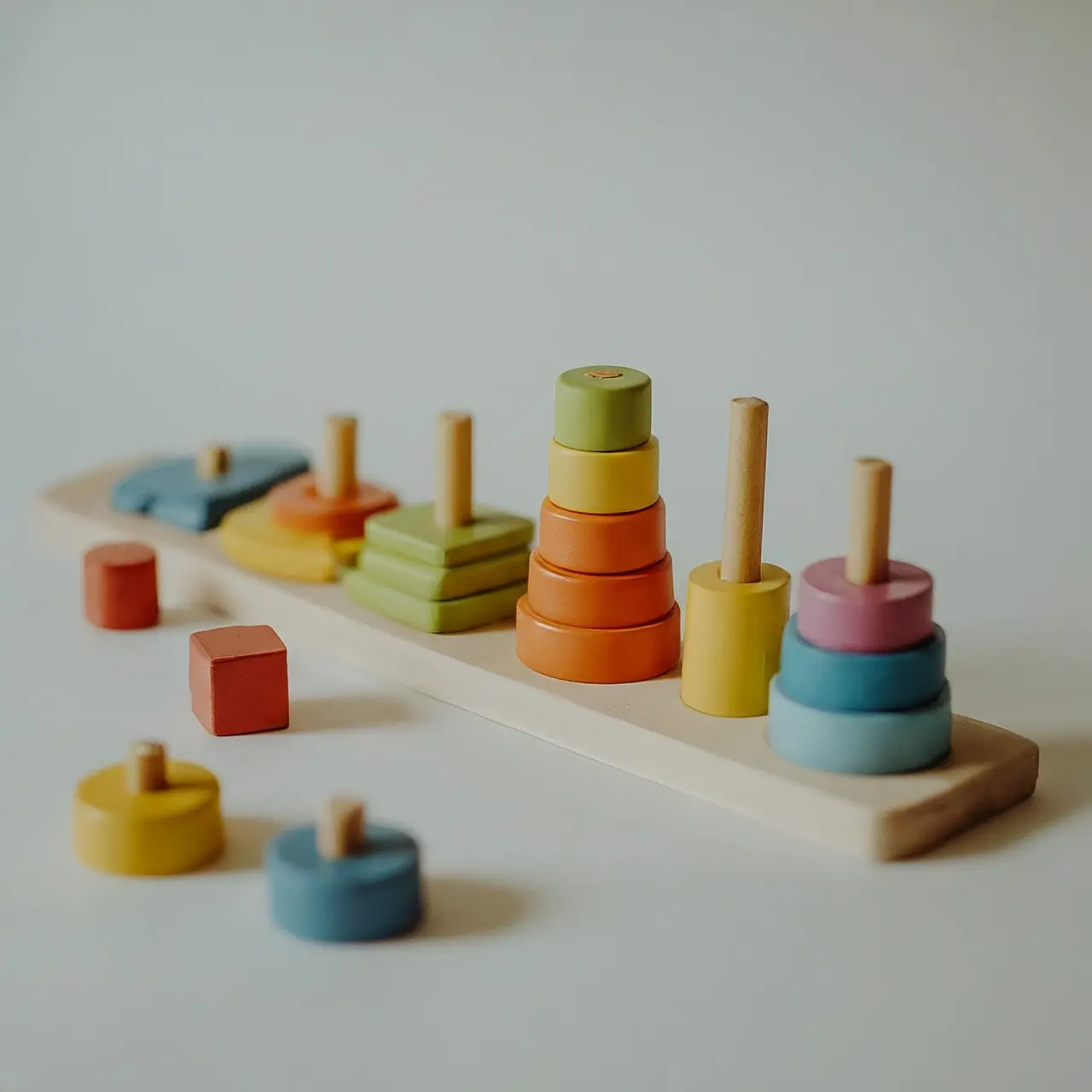In a world brimming with flashing screens and plastic toys, the simplicity and purpose behind Montessori toys offer a refreshing departure towards intentional play. These toys, grounded in the Montessori principles of education, are not just toys but tools that assist in the holistic development of your child. Dive into the essence of Montessori toys and understand why they are instrumental in shaping young minds.
Understanding the Montessori Method
The Montessori method, developed by Dr. Maria Montessori, is a child-centered approach to education that emphasizes hands-on, auto-didactic activities. This method fosters independence, respect, and a deep love for learning. Montessori toys are intricately linked to this approach, designed to encourage children to explore and learn at their own pace. They are simple yet purposeful, facilitating the child’s ability to concentrate and master skills.
A significant hallmark of Montessori toys is their emphasis on reality-based play. Unlike toys that rely on fantasy, Montessori toys are grounded in the real world, helping children understand and navigate their environment effectively. This grounding ensures that children develop a strong sense of spatial awareness and logical thinking from a very early age.
Key Benefits of Montessori Toys for Development
Montessori toys offer a myriad of benefits, integral to the developmental milestones of a child. Chief among them is the enhancement of fine motor skills. Through activities such as lacing, buttoning, and stacking, children develop dexterity and hand-eye coordination. These toys also foster cognitive development by encouraging problem-solving and independent thinking, laying a solid foundation for complex thought processes in the future.
Moreover, Montessori toys support emotional and social development. By engaging in play that mirrors real-life scenarios, children learn about the world around them, understanding concepts such as cause and effect, and developing empathy and social norms. This holistic approach ensures that children are not only learning academic skills but are also becoming well-rounded individuals.
How Montessori Toys Foster Independence
Independence is a cornerstone of the Montessori philosophy. Montessori toys are designed to be self-correcting, allowing children to recognize their mistakes and learn from them without direct adult intervention. This aspect of Montessori toys encourages children to take charge of their learning, developing a sense of responsibility and self-discipline. The design of these toys, often with incremental levels of difficulty, motivates children to push their boundaries and achieve new milestones autonomously.
Selecting the Right Montessori Toys for Different Ages
Selecting the right Montessori toy depends heavily on the child’s age and developmental stage. For infants, sensory toys like soft balls or rattles can stimulate senses and foster physical development. As children grow, introduce toys that challenge their motor skills and cognitive abilities, such as shape sorters or simple puzzles. For older toddlers, practical life toys that mimic adult activities, like cleaning sets or cooking tools, can be both educational and enjoyable.
It’s important to observe your child’s interests and abilities when choosing Montessori toys. A toy that’s too challenging can lead to frustration, while one that’s too simple might not hold their interest. The goal is to find toys that will scaffold their learning, offering just enough challenge to encourage development while ensuring the activity remains engaging and fun.
Incorporating Montessori Toys into Daily Play
Incorporating Montessori toys into daily play can be seamlessly done by creating an environment that encourages exploration and independence. Designate a specific area in your home where Montessori toys are easily accessible to the child. This not only promotes autonomy but also helps in organizing the space in a way that’s attractive and inviting to the child.
Routine is also an essential aspect of the Montessori method. Establishing a daily routine where children engage with their toys at specific times can help them develop a sense of time management and anticipation for learning. Moreover, involving children in the selection and care of their toys fosters a deep sense of ownership and respect for their belongings, reinforcing the core Montessori principle of independence.
Empowering Young Minds Through Play
Embracing Montessori toys is more than a choice; it’s a commitment to fostering an environment where learning and growth are interwoven with play. These toys, designed with the child’s developmental needs in mind, not only aid in their cognitive, social, and fine motor development but also respect and nurture their innate curiosity and ability to learn from their surroundings. Including Montessori toys in your child’s play is a step towards empowering them to explore, discover, and understand the world with engagement and enthusiasm.


